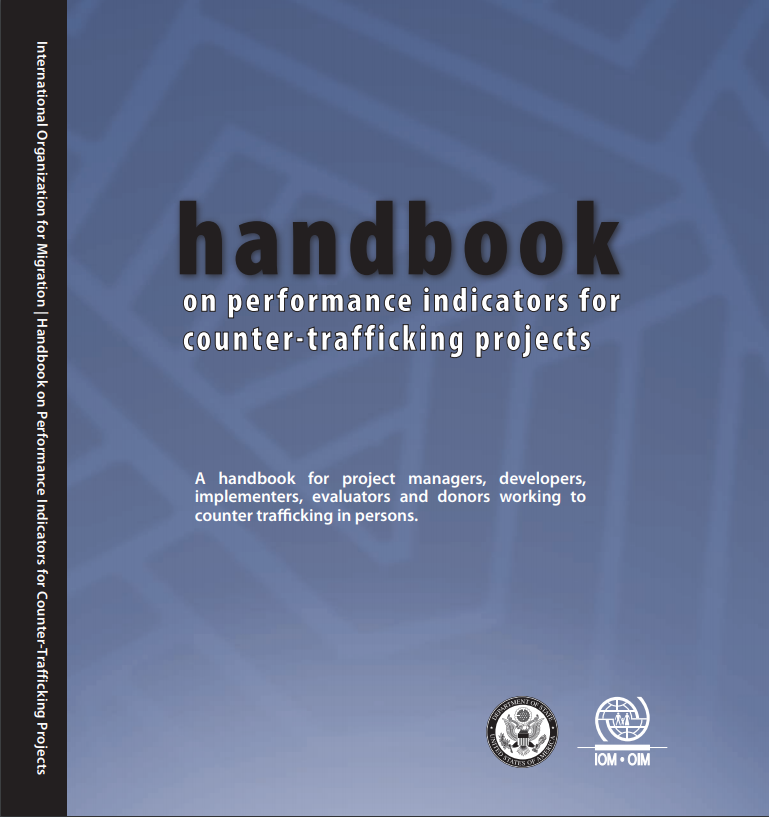This handbook is a resource and guide for project managers, developers, implementers, evaluators and donors working in the field of counter-trafficking, who want to develop performance indicators for their counter-trafficking projects. It is not intended to be a comprehensive set of guidelines for project development. It is meant to be used by any organization or donor to help define and incorporate indicators
that measure project performance within the framework of prevention, protection and prosecution.
Having data is essential to make decisions in designing, re-designing, reviewing, revising or updating counter-trafficking projects. Valid and reliable information can provide useful insight into the background
and mechanisms of the human trafficking process. Such information can also help identify gaps and needs in the provision of assistance, which can affect the formulation and implementation of targeted measures to improve conditions. Data and monitoring can help shape a project by highlighting situations that may require corrective action, fill an identified gap or highlight something that is working well that
should be replicated.

